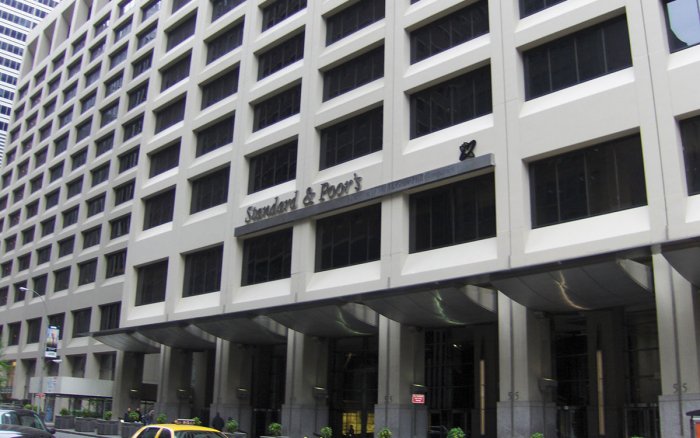Surprisingly Positive Outlook in the Midst of a Crisis

Gil C/Shutterstock
Much to the surprise of many, an international credit rating agency has improved Hungary’s outlook in the middle of the coronavirus crisis. However, analysts still predict a large scale setback for the economy and a slow recovery for the country.
Photo by Gil C/Shutterstock
Meanwhile, Hungary’s economic crisis management body has introduced a few tax reduction measures in order to tackle the difficult situation for companies.
Moody’s Investors Service changed Hungary’s outlook from “stable” to “positive” on September 25. At the same time, the international rating agency affirmed the long-term issuer and senior unsecured debt ratings at “Baa3”.
The move came as something of a surprise in the middle of a crisis, when the country’s gross domestic product fell by nearly 14% in the second quarter of the year on a yearly basis, and with the second wave of the coronavirus pandemic just around the corner, if not already here.
According to the agency, the key drivers for the change in outlook to “positive” are the strong recent and prospective performance of the economy relative to “Baa3”- and “Baa2”-rated peers, with related improvements to the domestic and external debt position.
Compared to other countries in the region, Hungary has been less impacted by the crisis, Moody’s judges. “While strong economic growth and government debt reduction have inevitably been derailed by the coronavirus crisis, the impact on Hungary’s credit profile has been more limited than elsewhere,” the ratings agency wrote in its press release.
The agency expects that the improvement in the government’s fiscal and debt metrics seen since the last rating action in November 2018 will resume from 2021, and that the reduction in external vulnerabilities since 2012 will be sustained.
Accomplishments Acknowledged
Moody’s also noted that the “Baa3” rating incorporates a number of credit challenges, such as the strong dependence of the economy on manufacturing and the related exposure to the automotive sector of Germany (which is rated “Aaa” with a “stable” outlook).
The fact that the government debt burden remains above the median of similar-rated peers and that some weaknesses in the institutions and governance framework, mainly in relation to civil society can be detected also indicates maintaining the “Baa3” rating, as does Hungary’s occasionally confrontational relationship with the European Union.
In its detailed rationale, Moody’s has acknowledged that since its last rating action in November 2018, the Hungarian government has made further progress in implementing its fiscal consolidation and debt reduction strategy, supported by sustained strong growth momentum, with average annual real GDP growth of 5% in 2018 and 2019. Over the five years till the end of 2019, general government debt fell from 76.2% of GDP in 2015 to 66.3% of GDP.
But it also adds that the coronavirus pandemic has had, and will continue to have, a significantly negative impact on Hungary’s economy, government finances and debt metrics.
Moody’s forecasts a real GDP contraction of 5.5% in 2020, followed by a recovery in growth to about 4% in 2021, somewhat slower than the government’s own projection of 4.8% growth in its 2021 budget. Government debt will rise a further 10 percentage points to around 76% of GDP.
Forecasts Knocked Back
However, due to the second wave of the pandemic, analysts are getting increasingly pessimistic about Hungary’s economy. According to economic research institute GKI, GDP contraction will be around 7% this year, and it will be followed by a rather slow recovery in 2021. In its latest forecast, GKI also emphasizes that, due to uncertainties, the fallback in 2020 might be at a smaller or even a larger scale.
In spite of the great amount of uncertainties, GKI still expects 4.5% expansion of GDP next year; however, as it notes, such expansion can only start in the second quarter of the year.
Compared to the EU, Hungary’s GDP will most likely rise above the EU27 average; however, when it comes to peer countries in the region, only a weak to medium growth rate is expected. In its summer forecast, GKI thought the Hungarian economy would contract by 5.7% in 2020.
The National Bank of Hungary (MNB) has also knocked back its growth expectations for this year: In its latest quarterly “Inflation Report”, it said it expected the economy to contract between 5.1% and 6.8% this year.
In the meantime, the government once again convened the Gazdaságvédelmi Operatív Törzs (Economic Protection Operational Corps), a body for overseeing economic protection, which, in its meeting at the end of September, decided on certain tax reduction and simplification in order to ease the situation of companies impacted by the virus.
The government has also decided on extending the debt repayment moratorium that was originally planned to end on December 31. From next January, certain endangered group of people will automatically remain in the scheme: pensioners, public scheme workers and families raising children will all continue to benefit from the moratorium.
According to portfolio.hu analysts, the announced measures are not enough and they hope that the new economic protection plan, said to be introduced in the fall, will be more purposeful and will contain more efficient elements in order to tackle the current crisis situation.
Numbers to Watch in the Coming Weeks
On October 5, the KSH will publish August retail sales figures. On the next day, the first estimate of industrial production for August will come out, followed by the commercial accommodation data for August and the consumer price index for September on October 7 and 8, respectively.
SUPPORT THE BUDAPEST BUSINESS JOURNAL
Producing journalism that is worthy of the name is a costly business. For 27 years, the publishers, editors and reporters of the Budapest Business Journal have striven to bring you business news that works, information that you can trust, that is factual, accurate and presented without fear or favor.
Newspaper organizations across the globe have struggled to find a business model that allows them to continue to excel, without compromising their ability to perform. Most recently, some have experimented with the idea of involving their most important stakeholders, their readers.
We would like to offer that same opportunity to our readers. We would like to invite you to help us deliver the quality business journalism you require. Hit our Support the BBJ button and you can choose the how much and how often you send us your contributions.








